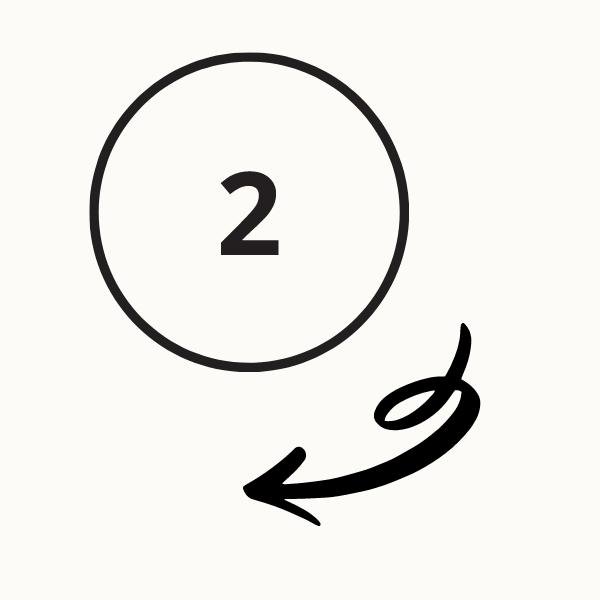
Step Two: YOUR VALUES IMPACT
Turn your values into allies to prevent unnecessary conflict.
It is hard to create Happily Ever After when we don’t understand the impact of our values.
In fact, when we don’t understand how each of our personal values influences and impacts our day-to-day behavior, this disconnect can create unnecessary conflict within ourselves and with others.
The purpose of finding your most important personal values is to use them to make your life better than ever.
To do so, you must be able to understand how your values show up in the world: are you using your values as tools for positive impact or as weapons for negative impact? Because if you are using them as weapons, you might be creating unnecessary conflict.
This Step helps you see how you use your values in ways that might create tension for yourself and others.
There are three sections to this Guide:
Values Impact: Tools or Weapons?
Value’s Reflection
The Power of Understanding How You Use Your Values
There is one tool for this step: the Values Impact Worksheet.
As an added bonus for this step, we have included a digital copy of Tomi Llama's book What's Your Superpower?
Additional guidance for using your values to prevent unnecessary conflict is offered in the video that accompanies this step.
Let’s get started!
Table of Contents
-

Values Impact: Tools or Weapons?
-

Value’s Reflection
-

The Power of Understanding How You Use Your Values
-

What's Your Superpower?
-

Values Impact Worksheet
-

Values Impact Video
1. Values Impact: Tools or Weapons?
Used as a tool, your personal value has a positive impact on you and others.
Used as a weapon, your personal value has a negative impact on you and others. The value is used in a diminishing or marginalizing way.
To clarify, I am going to share a personal example of me using a value as a weapon.
When I started trying to figure out my 5 most important values, I wasn’t even aware that I was using some of them as weapons.
In my younger days, I was a practicing attorney. I was very good at arguing and using my verbal skills to give people tongue-lashings even if they didn’t necessarily deserve it.
Not some of my finer moments… but it is what I did.
I loved feeling like the smartest person in the room and letting everyone else know that I was the smartest person in the room, even if I wasn’t. I didn’t care what you had to say, I wasn’t listening to it.
I was using my value of wisdom to show, “I’m smarter than you,” in a diminishing way as opposed to working to use that value for everyone’s benefit.
I was using wisdom as a weapon instead of a tool.
When we use our values as weapons, in diminishing ways, it creates conflict for you or for others.
People who have values like generosity, service, or kindness have to be extra careful not to use those values as weapons against themselves.
When we use these values as weapons, we can give and give until we are depleted and angry.
We might be very frustrated that we are doing all the work or are the one who has to keep sacrificing.
Sometimes, people who have these helping values wake up one day and are mad as can be and aren’t sure why.
Has that happened to you?
Quite possibly, it’s because you have used one of these helping values to your own detriment.
Perhaps by valuing generosity, you have given and given, you have depleted yourself have depleted yourself, you’re exhausted, and now you are mad.
To add to the fury, you haven’t received from others the same level of generosity that you’ve given.
The use of that value has a negative impact on you.
If you feel depleted, it might be because you are using one of your values as a weapon against yourself!
The tool for this step will help you see if that is true.
I have a personal example of using a value as a weapon. I used the value of family to my detriment:

I used the value of family against myself for over a decade as I cared for my sick mother and brother.
Between 2008 and 2018, I sacrificed most of my life for them. I pretty much abandoned my children and husband as I cared for mom and Mike. I let my business partners manage a lot of the business while I cared for these family members. This went on and on.
In the spring of 2017, I mentioned to my son Warren that I wanted to spend the month of November at the beach but I didn’t want Mom and Mike to be alone. Warren looked me in the eye and said, “Haven’t you given them enough of your life?” Dang it.
How could my then 22-year-old son see it so much better than I?
I knew family was a value. I was honoring it hard. I thought I was showing my children how to care for sick relatives. No.
I was actually showing my children how to compromise everything about themselves by using a value as a weapon.
Needless to say, I went to the beach that November.

I learned an invaluable lesson:
You don’t have to sacrifice who you are in service of a value.
You can also use your values as weapons against others when you try to impose those values on others who may not value the same thing.
You are attempting to hold them to a behavior that you care about and that they might not value in the same way you do. That can negatively impact the people you care about.
It is important to understand the values of the people in your inner circle.
When the values of you and your inner circle align, conflict is reduced.
I have another example of using a value as a weapon (I was very good at using my values in this way):

One Sunday, our family was going to get ice cream.
Now, I am all about effectiveness.
It is the outcome from my value of wisdom. I have to be effective at everything. Things have to be done a certain way or you aren’t being effective, which means you aren’t being wise, and that can push my buttons.
Like on this particular Sunday.
I am married to someone who loves the scenic route. As someone who loves effectiveness, I have to go the fastest route.
You can tell where this is going, right?
On the way to get ice cream, Jim drove straight through a particular intersection instead turning left at the stoplight.
Now, everyone in that car but Jim knew that turning left at the stoplight meant we would get to the ice cream store faster.
So, I said something. In my less than nice, wifely tone. “Jim, what are you doing? Why didn’t you turn left?”
My oldest son Shep said, “Mom, it’s Sunday. We don’t have to be anywhere. It doesn’t matter how we get there.”
I sat in silence in the back seat the rest of the way to the ice cream store, thinking about Shep’s comment.
In fact, I spent the next week thinking about all of the ways I had been imposing effectiveness on my husband, who didn’t care about effectiveness, and how much unnecessary tension that had caused in our marriage.
It wasn’t a fun moment. And it allowed me to see how important it is not to use my values as a weapon.

Part of sharing my personal stories is to ensure you that I am not simply repeating something I read in a book. I have lived all of the things I share. I have been bad at these things and hopefully, now I am good at living true to my values as tools not as weapons.
Note: there is always room for improvement.
I love the language of tools and weapons because it provides a simple and gentle entry point for holding yourself and others accountable for behavior.
So how do we understand how we are using our values?
We reflect on the ways we use them in our lives using the Values Impact Worksheet.
Using the worksheet allowed me to see that I wasn’t using my value of wisdom in positive ways. I was marginalizing others with its use and that didn’t feel good.
2. Values Reflection
The Values Impact Worksheet provides space for reflection, allowing you to examine the way each of your values shows up in the world.
-

Start by listing your top five values in the first column on the worksheet.
-

Then, answer these reflective statements about each value in the space provided:
・Identify ways you use this value as a tool.
・Identify ways you use this value as a weapon.
・Identify new ways to use this value as a tool. -

Think about how you make others’ lives better with how you use your values.
Think about how you might make things a bit more challenging for others, too, based on how you use your values.
-

Then, reflect on how to do the 1st piece (making others’ lives better) more often with your values!
As you reflect, use the past and next 90 days as your timeframe. →This is a guideline. If needed, go back farther in time to find examples.
-

If you can’t think of any examples, revisit the worksheet later.
Understanding your values is a discovery process. Time is an important partner in the process.

3. The Power of Understanding How You Use Your Values
We can’t stop doing something if we don’t see or understand that we are doing it.
Completing the worksheet allows you to reflect on your values and determine whether you use your values as weapons against yourself or others.
Once you are aware of your actions, you can learn to do something differently and reduce the friction toward yourself or others.
Doing so reduces conflict in your life and that will make you a happier person!
I can’t emphasize enough the difference in my relationship with my husband when I stopped trying to impose effectiveness on him.
He has to do what works for him, and I have to do what works for me. When we can honor each other’s differences in this way, it certainly changes things.
In Step Six, we will revisit how to use values to build a happier relationship so you can find love that delights your heart!
For now, use the Values Impact Worksheet to investigate the impact of your values on your relationships with self and others.
Don’t forget to enjoy the adventure of learning more about yourself!




